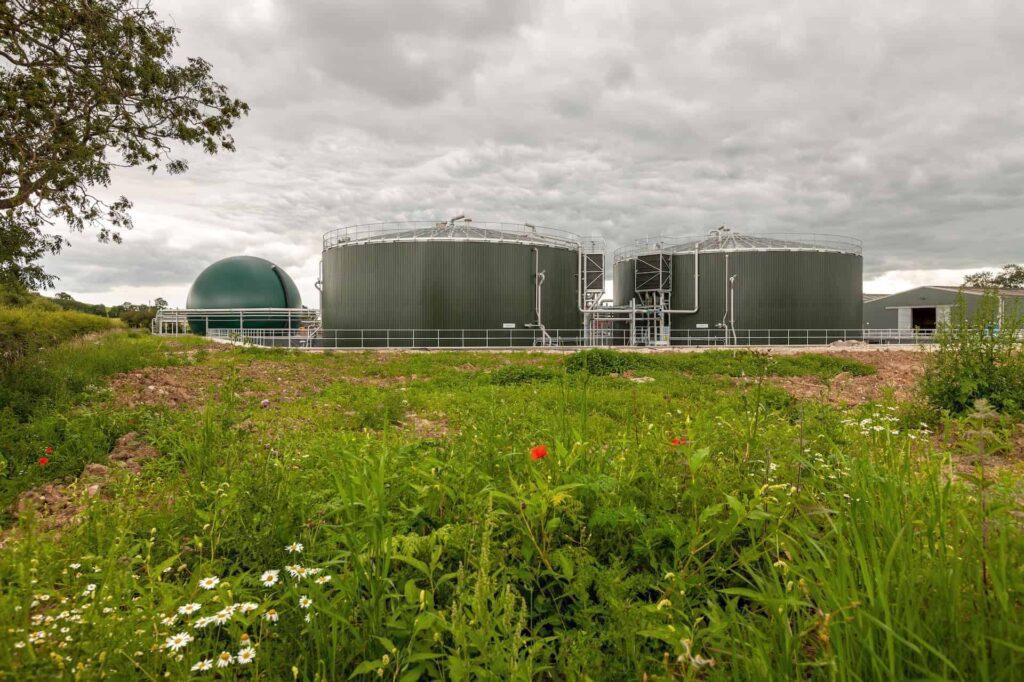A New Era for the UK's Energy Sector
- Commercial
- -
The UK is poised for major changes in its energy sector as the Labour government introduces a bill to create Great British Energy (GBE), a publicly owned energy company focused on advancing energy independence and prioritising clean energy. This initiative promises new job opportunities and significant investments in local communities and the economy.
Key Points
- What is Great British Energy
- How anaerobic digestion can support Great British Energy
- The Simpler Recycling Scheme and Great British Energy
A Collaborative Approach to Energy Innovation
Great British Energy envisions itself as a collaborative force uniting policymakers, industry leaders, and trade unions to invest in and drive new technologies and energy solutions. By involving local authorities and industry experts in decision-making, GBE aims to fund and launch thousands of green energy projects across the UK. This collaborative approach also encourages communities to propose projects for funding, ensuring that local voices are heard in the path to a green energy revolution.
By reducing the amount of fuel imported into the UK for energy purposes, a reduction in energy costs and carbon footprint could be on the horizon. The UK’s economic challenges and high energy bills could be significantly diminished by producing our own energy rather than importing it, as well as creating jobs, investment opportunities, and greater energy independence. Numerous green energy initiatives could contribute to home-grown energy in the UK, from solar power to wind power, and of course, anaerobic digestion.
Anaerobic Digestion: Transforming Food Waste for Good
Food waste, as it decomposes, releases significant amounts of methane (CH4) and carbon dioxide (CO2) into the atmosphere, heavily contributing to environmental strain. Anaerobic digestion offers a solution by diverting food waste from landfills and capturing the gases produced during decomposition. This captured gas, known as biogas, can be injected into the national grid or converted into electricity.
By relying on AD, we can utilise our waste to produce green energy, simultaneously decreasing the amount of food waste entering landfills and reducing our carbon footprint. This approach not only strides us towards net-zero emissions but also significantly decreases our reliance on imported fossil fuels.
The outcome of AD doesn’t stop at biogas. The digested food waste, also known as ‘digestate,’ serves as a nutrient-rich biofertiliser for crops, reducing the need for chemical fertilisers that are expensive and harmful to the environment. Additionally, using technology from Bisviridi, fats, oils, and greases (FOGs) can be extracted from the process and refined to create biofuel for vehicles and sold on into the sustainable aviation fuel market.
The Simpler Recycling Scheme: Boosting AD Feedstock
The Simpler Recycling Scheme, set to take effect in March 2025, introduces legislation requiring all businesses, and eventually residential properties (from 2026), to separately recycle food waste from residual waste. This initiative is well-aligned with the objectives of GBE, as the anticipated increase in food waste recycling is expected to enhance the feedstock for anaerobic digestion (AD). Consequently, AD operators across the UK are positioned to play a critical role in contributing substantial amounts of locally produced energy, further supporting the nation’s shift towards sustainable energy solutions.
The Future of Energy in the UK: Towards Net Zero and Beyond
Great British Energy has ambitious desires to represent a new era for how renewable energy exists and operates in the UK. By emphasising the use of AD, along with other reliable green energy production, we can potentially eliminate the need for fossil fuels in the UK. This shift towards net-zero emissions, economic recovery, and a more resilient energy system is a promising plan for the future of the UK. Anaerobic digestion stands as a key component in this transformative journey towards sustainability and resilience.

In our open letter to the Government, Chief Commercial Officer Lee Dobinson highlights the urgent need to tackle the food waste crisis. We strongly encourage the Government and MPs to support the implementation of food waste recycling through anaerobic digestion, which will be crucial in enabling GBE to reach its full potential.
